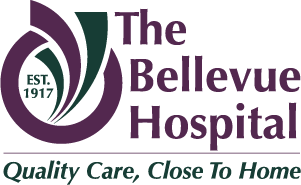Cardiac Rehabilitation is a program for patients who are recovering after heart problems or surgery. Rehabilitation can do a lot to speed up your recovery and reduce your chances of future heart problems.
Through Cardiac Rehabilitation, you will learn how to:
- Improve physical fitness and exercise safely
- Adopt a heart healthy diet
- Manage other cardiovascular risk factors
- Adhere to and/or follow your treatment plan
- Focus on your emotional health and the importance of staying engaged socially
The Bellevue Hospital Cardiac Rehabilitation Program has three phases:
Phase I is an educational component for inpatients with heart-related conditions. Education includes videos and one-on-one sessions with skilled cardiac nurses.
Phase II is geared for outpatients who have had a heart attack, bypass surgery, angioplasty, or other heart-related conditions. The emphasis is on education and conditioning. Phase I and Phase II are typically covered under insurance.
Phase III is where patients continue their newly formed healthy lifestyles, including exercise and diet. Phase III may be continued at home for free, or participants may choose to continue their diet and exercise plan through The Bellevue Hospital's Cardiac Rehabilitation Department for a low, out-of-pocket fee.
Pulmonary Rehabilitation
Pulmonary Rehabilitation is a program for people with chronic lung disease, which may include: emphysema, chronic bronchitis, asthma, bronchiectasis and interstitial lung disease.
The Bellevue Hospital Pulmonary Rehabilitation Program includes:
- Exercise
- Education
- Breathing retraining
- Emotional support
- Nutrition counseling
The purpose of Pulmonary Rehabilitation is to help people lead a full, satisfying life and restore them to their highest functional capacity.
The goals of Pulmonary rehabilitation are to improve the quality of life by:
- Decreasing respiratory symptoms and complications
- Encouraging self-management and control over daily functioning
- Improving physical conditioning and exercise performance
- Improving emotional well-being
- Reducing hospitalizations
Supervised Exercise Therapy (S.E.T.) for Peripheral Artery Disease (P.A.D.)
The Bellevue Hospital has now offers Supervised Exercise Therapy (S.E.T.) for individuals diagnosed with Peripheral Artery Disease (P.A.D.)
S.E.T. for P.A.D. is a physician referred exercise and education program which primarily includes walking exercises designed to help individuals walk longer without leg pain.
The program includes weekly exercise sessions which will occur three days per week, for up to a maximum of 12 weeks. Each session will last approximately one hour. The sessions include intermittent rest breaks and education about P.A.D. risk factors, nutrition and smoking cessation if needed. Individuals will need a referral from their primary physician to begin the S.E.T. for P.A.D. program. For more information about the program, CLICK HERE.
The Team Approach at The Bellevue Hospital
The Bellevue Hospital's Cardiac and Pulmonary Rehabilitation program includes a team of health care providers, including: doctors, nurses, specialized therapists, exercise physiologists and dieticians all working together. Our team evaluates each person's overall physical and emotional status. An individualized program is then developed.
Contact Information
For more information please dial 419.483.4040 and the following extension.
| Cardiac or Pulmonary Rehabilitation | Ext. 4303 |

